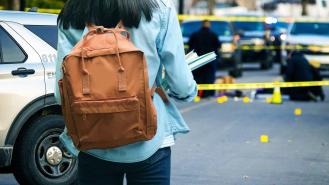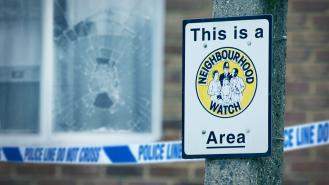
Top safety tips for new university students
From Freshers’ Week right through to graduation day, university is sure to be one of the great adventures of your life. Chances are you’ll make all kinds of random friendships, go on spontaneous jaunts to different venues, and have more than a few very late nights.
It’s all very exciting, but you’ll also want to keep your wits about you to minimise your chances of falling victim to crime. Here are some simple precautions that will help keep you as safe as possible throughout your time as a student.
Familiarise yourself with your new location
One of the most enjoyable aspects of university is getting to know the new town or city you’ve moved to. Apps like Google Maps and Citymapper allow you to instantly navigate your way from A to B at a moment’s notice, but it’s a good idea to have a general knowledge of your new home.
When you have some time to spare, sit down and check out your town or city on your preferred app. Get a sense of where your accommodation is, relative to where you’ll go for lectures, local shops and popular nightlife venues. Having this general awareness of how different locations connect can make you feel more at ease with your new surroundings and allow you to make better judgement calls when out socialising.
Drink carefully
Going out to bars and clubs is a key part of uni life for many students, but drinking excessively can risk putting you in vulnerable positions. Try to avoid consuming too much alcohol on an empty stomach – have dinner before heading out or eat some snacks during the night.
Keep yourself hydrated by alternating the alcohol with water or soft drinks, and always remain vigilant about the possibility of being spiked. Be careful not to leave any drinks unattended, and if a stranger gets you a drink, be sure you visually track it from the bar staff’s hands to yours.
Be savvy when out and about
There are certain rules of thumb when it comes to staying safe when walking around a town or city, especially at night. Stick to well-lit areas with more pedestrians and traffic, even if it may make your journey a little longer. Dark, quiet shortcuts through parks, underpasses and isolated alleys are generally a risky idea.
If you’re walking by a road, try to go in the direction that faces oncoming traffic, so there’s no risk of someone pulling up next to you without you knowing. Try not to use earphones when walking at night, so you can always remain alert to your surroundings. It may also be worth buying a personal alarm which you can attach to your keyring, purse or wallet.
Keep in regular contact with friends
Try to keep in touch with those people you trust the most, whether that’s by WhatsApp, Snapchat or Instagram DMs. This is especially important if you happen to get separated from your group on a night out. This is something that can very easily happen at uni, where many people are eager to make new connections and socialising can take you on unexpected tangents.
Tell friends you’ll text them when you get home safely after a night out, and if you go back to the home of someone you don’t know well, send the address to friends you trust.
Get to know your university’s security provisions
Every university will have its own security services, whose staff are responsible for patrolling campus areas and responding to alerts and emergencies. Save their contact details on your phone so you can quickly notify them if there’s an issue.
You can also download SafeZone, an app which connects you to a university’s security team and allows you to check into study locations. This can bring peace of mind if you’re in a quiet part of the university. The SafeZone app also makes it easier for security officers to find you if you send an emergency alert.
Be vigilant at home
Staying safe at uni means protecting your home as well as yourself. University halls tend to be very safe by nature, with rigorous entry protocols and doors that automatically shut and lock. However, things can be less secure when you move into a shared house with your friends.
If your room has a ground-level window, always ensure it’s shut and locked when you go out. If housemates have ground-level windows, keep an eye out in case they forget to close them. You can also register your possessions, such as laptops, cameras, gadgets and other valuables, with Immobilise. This database can be viewed by police, so you’ll have a better chance of getting them back if they’re stolen and then recovered.
Be social media savvy
Being active on social media can be a great way to forge new friendships at university but be careful about how much information you broadcast to the world. Don’t announce your movements on nights out and don’t give away details regarding your living arrangements, how many housemates you have, or whether you may be home alone for a given period.
While this may sound like an over-cautious approach, staying savvy about how much daily information you share online can help protect you from unwanted attention and opportunistic criminals, from thieves to fraudsters.








